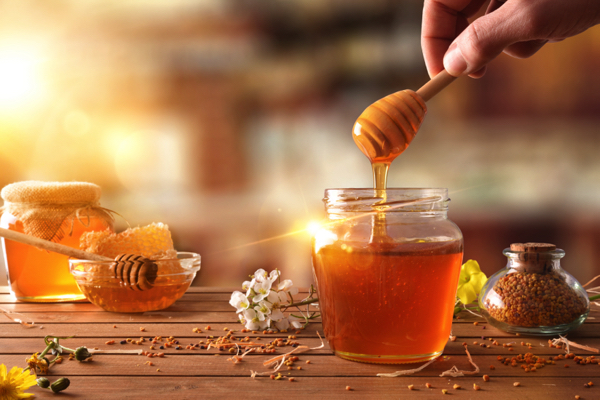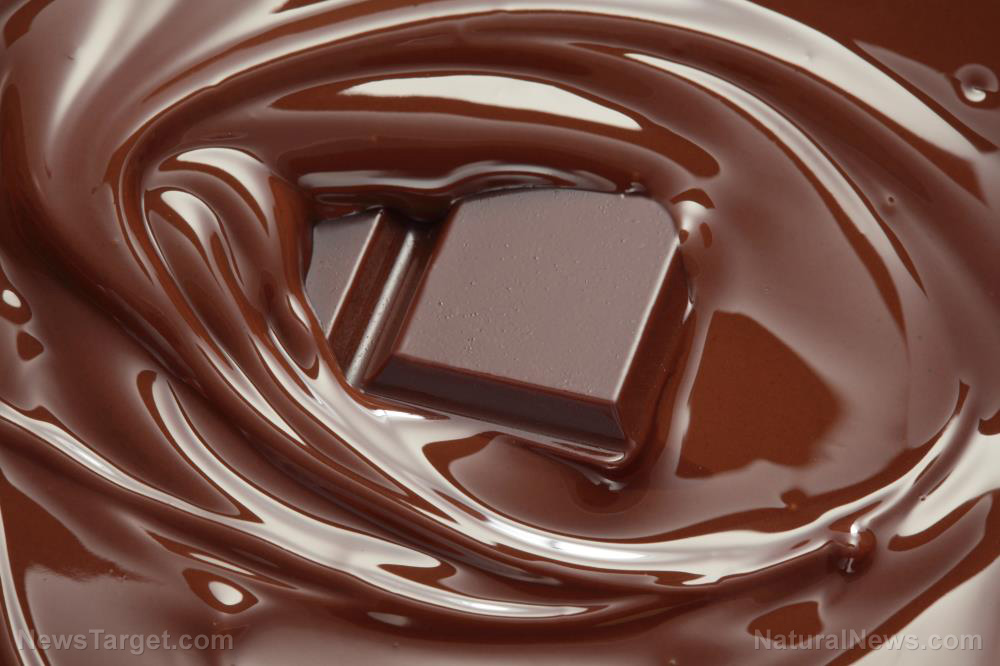 Parler
Parler Gab
Gab
For minor cuts, scratches and burns, honey can be applied topically to help speed healing. Honey acts as a broad-spectrum antibacterial agent and is known to lower prostaglandin levels while elevating nitric oxide end products, processes that help explain honey's wound-healing powers.[vii]
Honey's unique formulation, including its acidity, hydrogen peroxide content, osmotic effect and antioxidants, is responsible for a number of beneficial processes that stimulate and promote wound healing, such as:[viii]
- Enhanced tissue growth
- Increased epithelialization
- Reduced scar formation
- Stimulation of immunity
Honey is so powerful that in a study of critically ill children with pressure injuries, the use of a Manuka honey dressing/gel decreased wound healing time compared to standard care. In fact, the children treated with honey were 1.9 more likely to have their wound completely healed than those who received only standard care.[ix]
2. Soothe Coughs and Upper Respiratory Tract InfectionsHoney is regarded as highly beneficial in soothing irritating coughs, according to the ancient Indian medical system known as Ayurveda. Hippocrates was also known to use honey for coughs.[x] Modern research supports this use, with honey found to relieve cough symptoms better than no treatment, placebo and the antihistamine diphenhydramine. It also shortens the duration of cough better than the asthma drug salbutamol.[xi]
A systematic review and meta-analysis also revealed that honey was superior to usual care for improving symptoms of upper respiratory tract infections, including a reduction in cough frequency and severity.[xii] Among children with upper respiratory tract infections, honey also worked as well as the over-the-counter cough medication dextromethorphan, and better than no treatment, for relief of nighttime cough.
Further, parents rated honey more favorably than cough syrup, such that researchers concluded, "Honey may be a preferable treatment for the cough and sleep difficulty associated with childhood upper respiratory tract infection."[xiii]
Even the U.S. Centers for Disease Control and Prevention advises, "Use honey to relieve cough for adults and children at least 1 year of age or older."[xiv] Note that children under 1 year of age shouldn't consume honey because it can carry Clostridium botulinum bacteria.
3. Support Oral HealthUnlike sugar, which is detrimental to oral health, honey has multiple pharmacological properties that support good oral health. Among them:[xv]
|
Antibacterial effects on oral pathogens, including Streptococcus mutans, which can cause cavities |
Prevents the growth of biofilm organisms and reduces the production of acids in dental plaque |
|
Helps reduce gingivitis and prevent dental caries |
Works as well as chlorhexidine as a mouthwash |
|
Anticancer effects, particularly on oral squamous cell carcinomas in laboratory studies |
Enhances post-tonsillectomy healing |
|
Reduces malodor |
Manuka honey, when applied to the gums twice daily, even reduced plaque formation on par with chlorhexidine mouthwash and significantly better than xylitol chewing gum.[xvi]
4. Relieve Hemorrhoid SymptomsHoney's antibacterial and wound-healing properties make it a useful natural remedy for hemorrhoid relief. In a pilot study, a mixture of honey, olive oil and beeswax (at a ratio of 1:1:1) significantly reduced bleeding and itching in patients with hemorrhoids.[xvii]
The mixture also reduced pain, bleeding and itching in patients with anal fissures and was previously found to be effective for diaper rash, psoriasis, eczema and fungal infections of the skin.
5. Heal Dandruff and Seborrheic DermatitisApplying honey to your scalp may stop dandruff and seborrheic dermatitis, a form of eczema that causes scaly, greasy patches and redness, often on the scalp.
Applying a daily mixture of 90% honey and 10% water to scalp lesions, then rubbing it in for two to three minutes and letting it sit for three hours before rinsing, relieved itching and scaling after one week of treatment.[xviii] After two weeks, skin lesions had also healed and a subjective improvement in hair loss was noted.
Beware of Adulterated Honey When choosing honey to apply to minor cuts or help relieve dandruff on your scalp, quality matters. Raw honey is closest to its natural form and will retain much of its beneficial enzymes, amino acids and antioxidants. Because raw honey comes straight from the honeycomb, it is cloudy and contains additional beneficial substances like bee pollen and bee propolis. Most honey sold in stores is pasteurized, however, which may damage antioxidants and enzymes while destroying bee pollen, bee propolis and other compounds responsible for many of honey's healing effects. Pasteurized honey is clear with a longer shelf-life than raw honey but isn't likely to be useful for therapeutic effects. Pasteurized honey is also commonly adulterated with sugar or mixed with low-quality honey to make it more profitable. Far from supporting health, consuming adulterated honey may have adverse effects on your liver, kidneys, heart and brain.[xix] Depending on your needs, there's also medical-grade honey and Manuka honey, which is particularly known for its antibacterial properties and wound-healing potential. When it comes to soothing a cough or making a homemade dandruff remedy, however, there's little downside -- and limitless upsides -- to keeping a jar of high-quality raw honey in your medicine chest. Read more at: GreenMedInfo.comRevolutionizing agriculture: The GROW BIOINTENSIVE method unveiled in “How to Grow More Vegetables”
By Belle Carter // Share
How diet and neurotransmitters shape your brain power: Keys to mental clarity and longevity
By Willow Tohi // Share
Gene Logsdon unveils the flavor, beauty and smart economics powerhouse in your garden
By Ramon Tomey // Share
The miracle of MORINGA: Unveiling the power of nature’s most versatile superfood
By Belle Carter // Share
Chocolate: The greatest health news of all
By News Editors // Share
Governments continue to obscure COVID-19 vaccine data amid rising concerns over excess deaths
By patricklewis // Share
Tech giant Microsoft backs EXTINCTION with its support of carbon capture programs
By ramontomeydw // Share
Germany to resume arms exports to Israel despite repeated ceasefire violations
By isabelle // Share










